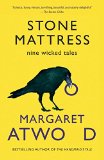Summary | Excerpt | Reviews | Beyond the Book | Readalikes | Genres & Themes | Author Bio

Critics' Opinion:
Readers' Opinion:
First Published:
Sep 2014, 288 pages
Paperback:
Jun 2015, 304 pages
 Book Reviewed by:
Book Reviewed by:
Lucy Rock
Buy This Book
A retirement home would provide company for her, at least. And it would take away the burden from her, the responsibility, because a house like hers needs upkeep, it needs attention, and why should she be saddled with all those chores any more? That was the idea set forth in some detail by the daughters-in-law. Constance could take up bridge-playing, or Scrabble, they suggested. Or backgammon, said to be popular again. Nothing too stressful or exciting to the brain. Some mild communal game.
"Not yet," says Ewan's voice. "You don't need to do that yet."
Constance knows this voice isn't real. She knows Ewan is dead. Of course she knows that! Other people--other recently bereaved people--have had the same experience, or close. Aural hallucination, it's called. She's read about it. It's normal. She isn't crazy.
"You're not crazy," Ewan says comfortingly. He can be so tender when he thinks she's having some anguish.
He's right about the salt. She ought to have stocked up on some form of ice melt earlier in the week but she forgot, and now if she doesn't get some, she'll be a prisoner inside her own house because the street will be a skating rink by tomorrow. What if the layer of ice doesn't melt for days and days? She could run out of food. She could become one of those statistics--old recluse, hypothermia, starvation--because, as Ewan has pointed out before now, she can't live on air.
She'll have to venture out. Even one bag of salt mix will be enough to do the steps and the walk and keep other people from killing themselves, much less herself. The corner store is her best bet: it's only two blocks away. She'll have to take her two-wheeled shopping bag, which is red and also waterproof, because the salt will be heavy. It was only Ewan who drove their car; her own licence lapsed decades ago because once she got so deeply involved in Alphinland she felt she was too distracted to drive. Alphinland requires a lot of thought. It excludes peripheral details, such as stop signs.
It must be quite slippery out there already. If she tries this escapade, she might break her neck. She stands in the kitchen, dithering. "Ewan, what should I do?" she says.
"Pull yourself together," Ewan says firmly. Which isn't very instructive, but which was his habitual way of responding to a question when he didn't want to be pinned down. Where've you been, I was so worried, did you have an accident? Pull yourself together. Do you really love me? Pull yourself together. Are you having an affair?
After some rummaging, she finds a large zip-lock freezer bag in the kitchen, dumps out the three shrivelled, whiskery carrots inside it, and fills it with ashes from the fireplace, using the little brass fireplace shovel. She hasn't lit a fire since Ewan ceased to be present in visible form, because it didn't seem right. Lighting a fire is an act of renewal, of beginning, and she doesn't want to begin, she wants to continue. No: she wants to go back.
There's still a stack of wood and some kindling; there are still a couple of partially burnt logs in the grate from the last fire they had together. Ewan was lying on the sofa with a glass of that disgusting chocolate nutrient drink beside him; he was bald, due to the chemo and the radiation. She tucked the plaid car rug around him and sat beside him, holding his hand, with the tears running silently down her cheeks and her head turned away so he couldn't see. He didn't need to be distressed by her distress.
"This is nice," he'd managed to say. It was hard for him to talk: his voice was so thin, like the rest of him. But that isn't the voice he has now. The voice he has now is back to normal: it's his voice of twenty years ago, deep and resonant, especially when he laughs.
She puts on her coat and boots, finds her mittens and one of her woolly hats. Money, she'll need some of that. House keys: it would be stupid to lock herself out and be turned into a frozen lump right on her own doorstep. When she's at the front door with the wheeled shopping bag, Ewan says to her, "Take the flashlight," so she trudges upstairs to the bedroom in her boots. The flashlight is on the nightstand on his side of the bed; she adds it to her purse. Ewan is so good at planning ahead. She herself never would have thought of a flashlight.
Excerpted from Stone Mattress by Margaret Atwood. Copyright © 2014 by Margaret Atwood. Excerpted by permission of Nan A. Talese, a division of Random House LLC. All rights reserved. No part of this excerpt may be reproduced or reprinted without permission in writing from the publisher.





The Flower Sisters
by Michelle Collins Anderson
From the new Fannie Flagg of the Ozarks, a richly-woven story of family, forgiveness, and reinvention.

The House on Biscayne Bay
by Chanel Cleeton
As death stalks a gothic mansion in Miami, the lives of two women intertwine as the past and present collide.

The Funeral Cryer by Wenyan Lu
Debut novelist Wenyan Lu brings us this witty yet profound story about one woman's midlife reawakening in contemporary rural China.
Your guide toexceptional books
BookBrowse seeks out and recommends the best in contemporary fiction and nonfiction—books that not only engage and entertain but also deepen our understanding of ourselves and the world around us.